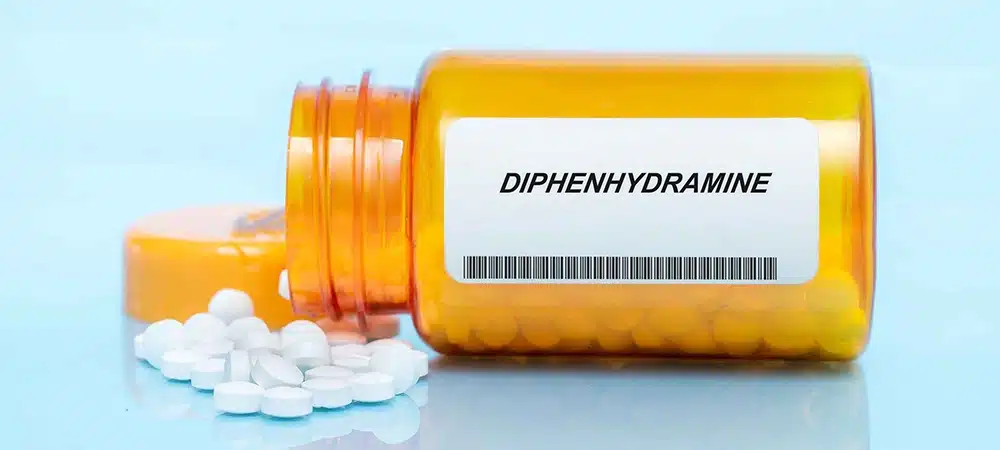Undertanding Hypnotics Addictions
Sedative, Hypnotic or Anxiolytic (SHA) drugs all fall under the same category. There are over 40 different drugs that are classified as either sedatives, hypnotics or anxiolytics.
Each of these substances comes with its own potential for abuse or misuse, and every one of them could potentially lead to an addiction. SHA medications are usually prescribed by a doctor, for a patient who struggles with an anxiety disorder, insomnia or some other sleep-related problems.
The value of these SHA medications has been well documented and proven – they really do help many people manage anxiety and/or insomnia.
However, it is also very well proven that abusing these medications can and will lead to addiction, which can be very harmful to your physical and mental health.
Do all people who have used these sleep aids or anxiety medicines become addicted to them? No. However, hypnotic and sedative drugs have the potential to be abused which many users don’t take into consideration, due to the assistance they can provide in alleviating sleep or anxiety issues.
Understanding Hypnotics Addictions
There are many different kinds of SHA medications, and all are used for some kind of anxiety or sleep disorder treatment.
SHAs work by increasing your brain’s levels of the neurotransmitter gamma-aminobutyric (GABA for short). These increases in GABA produce drowsiness, which is helpful for patients who have trouble falling asleep, staying asleep or who struggle with anxiety disorders.
FDA-approved hypnotic medications include benzodiazepines (such as Valium or Xanax), non-benzodiazepine receptor agonists, melatonin receptor agonists, and antidepressants.
Taken in larger quantities, most of the medications under the SHA umbrella create a euphoric effect – which is one of the reasons they are likely to be abused.
What are Hypnotics?
There are many different kinds of hypnotics – most can be broken into three different categories: barbiturates, benzodiazepines, and sleeping pills.
According to recent surveys, up to 33% of elderly North Americans are prescribed either a hypnotic or a sedative medicine for sleep aid. Long-term users of hypnotics tend to be elderly, women and/or individuals who have poor physical health status.
Barbiturates
Barbiturates are not so commonly prescribed anymore because of the health risks they pose. Commonly-known barbiturate medications include Seconal and Butisol, both used for anxiety and insomnia treatment. Barbiturates can also be prescribed to individuals who suffer from seizures.
Because one of the main effects of a barbiturate is euphoria, they are very easily abused.
Signs of barbiturate use or abuse can include confusion, sleepiness, mood swings, slurred speech, and talkativeness.
Benzodiazepines
These are commonly used for anxiety as they enable the user to relax and feel a sedation/euphoric effect.
Commonly known benzos include Halcion, Valium, Klonopin, and Xanax.
Sleeping Pills
Sleeping pills (such as Ambien) may be the most easily abused because people come to depend on them to achieve restful sleep.
Even though they are used to cure insomnia or assist with sleep, they are also very often abused to achieve a euphoric effect that can even leave you hallucinating.
Even if you don’t intend on abusing your sleeping aid prescription, relying on sleeping pills for long-term help with insomnia or sleep disturbances can be detrimental.
Overdosing on sleeping pills is much more common than many think because sleeping pills slow your breathing, which can induce a coma or even cause death.
Over the Counter (OTC) Hypnotic Sedative Medications
Some hypnotics (antihistamines) can be available over the counter. Benadryl, for example, is diphenhydramine used for treating allergies and can be purchased at your local pharmacy without a prescription.
Even over-the-counter hypnotics such as Benadryl have been deemed to have some potential for abuse – there have been cases in which over-the-counter hypnotics such as Benadryl have been abused for their euphoric effects.
Are Hypnotics Addictive?
Yes. Most hypnotic medications are in fact addictive and are listed as federally controlled substances.
It is very possible to become physically dependent after even just days of hypnotic use. The risk of dependence is higher, the longer the use continues.
Hypnotics Use Signs and Symptoms
Hypnotics are used to treat sleeping problems and anxiety, but they all work in different ways. Some hypnotics only work for a few hours, helping you fall asleep. Others can last longer in the body, soothing anxiety or helping you stay asleep.
Much of the time, the kind of hypnotic sedative you’re prescribed depends on what the issue is that you’re experiencing. For example, people who struggle to get to sleep will benefit more from short-acting medications, while people who have trouble staying asleep will likely benefit from longer-acting sleep aids.
Signs of Hypnotics Use
- Headache
- Short-term forgetfulness and loss of coordination
- Dry mouth
- Nausea
- Drowsiness
- Unpleasant taste
- Confusion
- Dependence or obsessive use
- Hallucinations
- Dizziness
- Cough
- Diarrhea
- Upper respiratory infection
- Hair loss
- Dry skin
In addition to experiencing these mild side effects, there is a possibility that the patient could react quite strongly to hypnotics, resulting in more serious side effects such as:
- Sleep paralysis
- Suicidal/abnormal thoughts
- Sleep driving and other complex behaviours performed while asleep
- Anaemia
- Hives
- Dermatitis
- Behavioural changes, such as increased aggression
- Worsening of depression and mood swings
- Slowed breathing
Many people who are struggling with hypnotic abuse will appear to have a zombie-like state of mind most of the time, even when they are awake or if it is the middle of the day.
Hypnotics sedative users can appear socially isolated and lack interest in anything that is happening around them.
Hypnotic abuse can easily lead to job loss, financial stress, and relationship issues with friends and family. The inability to quit can even lead to “doctor-shopping”, searching around for various doctors if you are denied a prescription.
Signs of Hypnotics Abuse
The signs of hypnotics addiction and/or abuse can include any of the following:
- Social isolation
- Tolerance
- Legal problems, job loss, financial issues, and relationship strains
- Detachment from reality
- Confusion
- Memory loss
- Impaired judgment
- Nightmares
Signs of Hypnotics Withdrawal
Withdrawal from hypnotics, like withdrawal from any substance that’s been overused, can be dangerous and uncomfortable.
Below is a list of possible side effects people withdrawing from hypnotic or sedative abuse may face:
- Sweating
- Vomiting
- Tremors
- Insomnia or anxiety spikes
- Visual, tactile and/or auditory hallucinations
- Seizures
- Increased heart rate
Unfortunately, an increase in anxiety and insomnia is almost guaranteed, along with possible tremors, shaking and vomiting.
It may be tempting to maintain a level of use instead of facing unpleasant withdrawal symptoms like this, but continued use of SHA medications isn’t the answer if you’re struggling with dependency and addiction.
Sedative, Hypnotic, Anxiolytic Addiction Treatment
If you’re having trouble sleeping or struggling with anxiety attacks, you may be desperately searching for any kind of assistance. And once you find something that seems to help (such as anti-anxiety medication), it can be difficult to see where medical use ends and drug abuse begins.
As these kinds of medications are usually prescribed for sleep aid or anxiety relief, abusing them can happen easily, even seeming like an appealing option to some. In many cases, you or someone you know may not even be aware of a growing dependency on SHA medications.
Below are some signs that you may be abusing your sleeping aid or anxiety relief medications:
- Failed attempts at stopping the use
- Cravings
- “Doctor shopping” if your current doctor denies your prescription or discontinues it
- Experiencing memory or coordination loss
Stopping the use of SHA medications once you have developed a dependency can prove extremely difficult, especially as some of the withdrawal symptoms can mimic those of the sleep/anxiety disorders the user was prescribed the SHA medication for, to begin with.
However, abusing hypnotic sedatives is not the key to resolving these issues.
In fact, it will most certainly cause you mental health and physical health problems in the long term, because the more you use these hypnotics, the more you will depend on them for a good night’s sleep or to cope with anxiety. This is known as chemical coping.
If you’re interested in ending the use or abuse of hypnotics and want more information for yourself or a friend, there are many resources available to help you detox safely, and with the least amount of discomfort possible.
Recovery from this kind of dependence usually means one month or more of abstinence, along with cognitive-behavioural counselling, a form of therapy in which you generally cover things like stress management, relaxation techniques and other coping techniques that can help you with insomnia or anxiety.
There are self-help and 12-step programs, as well as other types of recovery options, that can provide more long-term support.
Replacing a hypnotic addiction with healthier behaviours and coping mechanisms means you can learn to live a happy and healthy life without the need for sleep or anxiety aids.
Mental Health and Sedative, Hypnotic, Anxiolytic Drug Abuse
Does the use (or abuse) of sedatives, hypnotics or anxiolytics put you at higher risk for mental health concerns? Yes, it does.
What many users may not truly understand is that prolonged use or abuse of any SHA medication can not only lead to addiction, but it can also be detrimental to your mental health.
It is proven that prolonged use and abuse of SHA medications lead to memory loss and depression, and in some cases, abuse of these substances could increase the risk of dementia.
When SHA use becomes a pattern and presents as highly problematic to the user, the individual can be diagnosed with SHA Use Disorder.
Natural Hypnotic Supplements
Synthesized melatonin pills or tablets can achieve much the same effect as a doctor-prescribed hypnotic. Although melatonin takes up to a few days or weeks to have noticeable effects, it is a much healthier option and puts you at far less risk for dependence or abuse.
If you’re interested in natural remedies for anxiety or sleep that don’t involve prescribed hypnotic sedatives, talk with your doctor and see what your options are.
Frequently Asked Questions
Why are SHA medications prescribed for sleep aid or anxiety relief if they are dangerous?
A complete medical/mental health history is important when a doctor is prescribing a controlled substance like this, because of the potential for misuse and dependence. However, this doesn’t eliminate the years of research proving that these medications can be helpful to those struggling with anxiety or sleep problems when used properly.
To avoid abuse of these medications, your doctor should take your medical and mental health history into account before choosing to prescribe the medication.
Oftentimes, your doctor may also monitor your SHA use by asking you to bring in your medication container when you come for a refill, doing pill counts when you come in for check-ups and/or requesting urine testing if they suspect you are abusing the medication.
Doctors also check to make sure you haven’t been asking for refills of your prescription at your local pharmacy ahead of schedule.
What is sedative, hypnotic or anxiolytic use disorder?
SHA use disorder is generally determined by a few things:
- The presence of harmful consequences of repeated use of these substances
- A pattern of compulsive use
- Possible addiction, identified by heightened tolerance levels or withdrawal symptoms
This disorder commonly occurs together with an antisocial personality disorder, major depressive disorder, bipolar disorder, and generalized anxiety disorder.
What are SHA drugs?
SHA is the classification of the substances under the sedative, hypnotic and anxiolytic spectrum. There are over 40 medications that come under the SHA classification.
Sedative drugs slow down your brain activity and are typically used to make you feel more relaxed, for example, so you can fall asleep.
Hypnotic drugs are longer-acting sedative drugs that not only increase drowsiness to help you fall asleep but also increase GABA activity (explained at the top of this post) in your brain to help you stay asleep.
Anxiolytic drugs (also known as antianxiety agents) inhibit your anxiety levels by producing more of the GABA neurotransmitter chemical in your brain that induces drowsiness.











